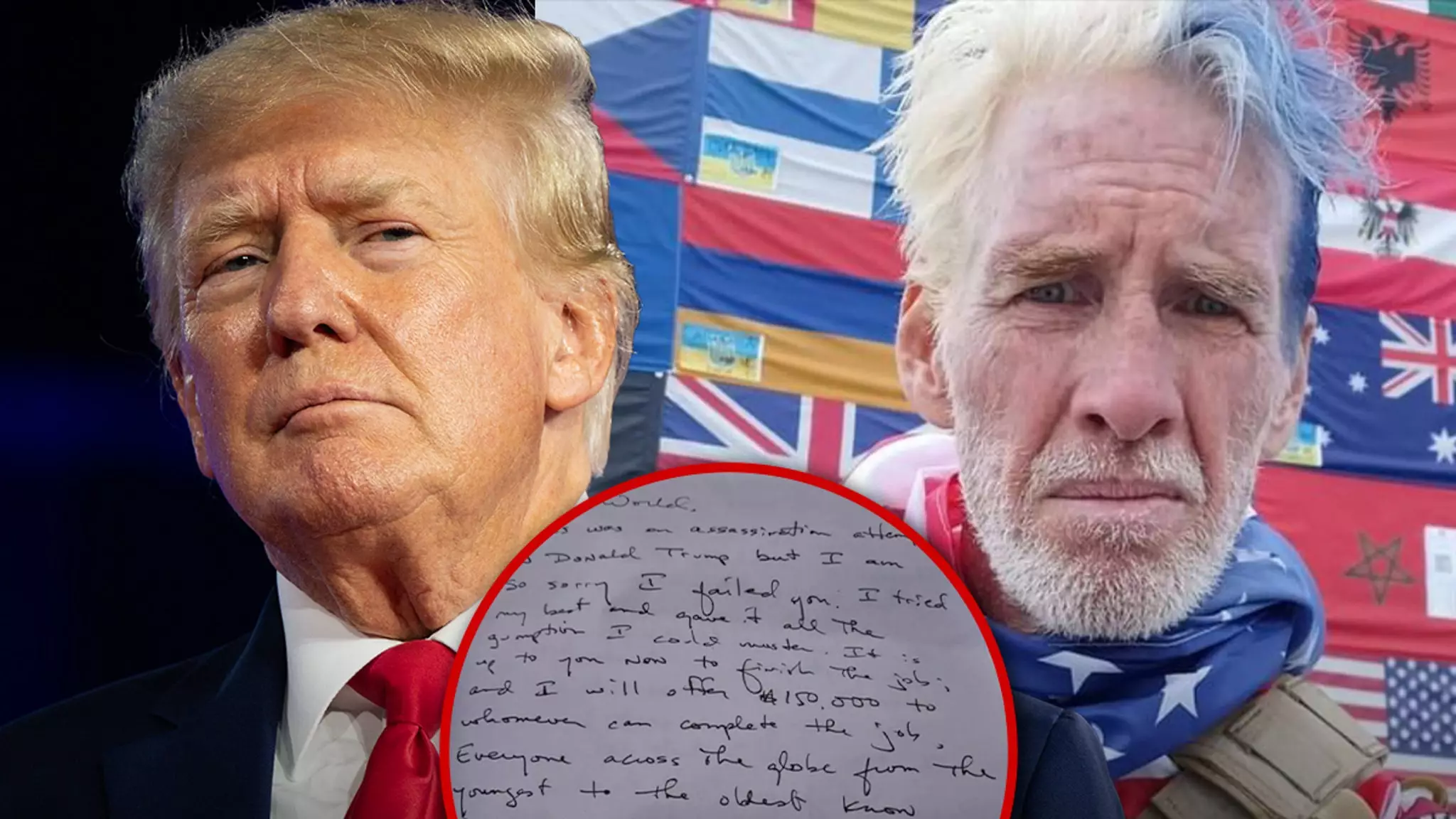In a disturbing turn of events, Ryan Wesley Routh has emerged as a figure associated with a chilling assassination plot against former President Donald Trump. The revelation came from a recently released letter, which federal prosecutors brought to light, detailing Routh’s intentions and urging others to participate in violent actions against the Republican nominee. The implications of this letter and the subsequent investigation raise significant concerns about political violence and the state of public discourse in America.
A Grievous Manifesto
The contents of Routh’s letter paint a vivid picture of a man prepared to go to extreme lengths in his pursuit of violence. In his own words, Routh expressed disappointment in his failed attempt to execute an assassination on Trump and even went so far as to offer a staggering reward of $150,000 to anyone willing to complete the job. Such language is not only alarming but indicative of a larger issue concerning the proliferation of violent rhetoric among individuals who feel disenfranchised or radicalized by political discourse. The normalization of violent speech sends ripples through the fabric of society, where a segment of the population may feel emboldened to act on such sentiments.
The letter was discovered months after it had been penned, lying in a box containing ammunition and a metal pipe. It was opened by a recipient, whose identity remains undisclosed, only after Routh’s name surfaced in connection with a potential assassination attempt. The timing of this discovery raises alarming questions: How long had Routh been contemplating these actions? And what societal conditions might drive an individual to such desperation? The mere act of placing a potentially lethal arsenal in the possession of another person underscores the alarming realities of gun ownership and the responsibilities that accompany it.
Routh’s targeting of Trump was not merely an impulsive act but rather a premeditated plan, evidenced by a handwritten list found in his car outlining dates and locations for Trump’s public appearances. The presence of multiple cell phones in Routh’s vehicle, along with searches indicating possible escape routes, paints a picture of someone meticulously plotting a violent act. This level of planning suggests that Routh did not act in a vacuum; rather, it raises concerns about the potential networks that might exist, willing to propagate such violence.
The Role of Authorities
The role of the Secret Service in this unfolding saga cannot be understated. Their alertness to the potential threat, highlighted by the discovery of an AK-style rifle near Trump’s golf outing, exemplifies the constant tension surrounding any public figure. Nevertheless, the question arises about the broader societal implications of increasingly aggressive political sentiments. While the actions of Routh can be attributed to individual mental instability, they also hint at a culture that may inadvertently foster extremism.
In essence, Routh’s case acts as a sobering reminder of the perilous intersection between political conviction and violent intentions. As more details emerge and the investigation unfolds, it becomes increasingly clear that society must grapple with the complex factors that drive individuals toward such dark paths. Understanding these motivations is vital—not only to ensure accountability for those involved but also to foster a political climate that discourages violence and promotes constructive dialogue. In the words of Routh, “It is up to you now to finish the job”; it is essential that society collectively rejects that call for violence and chooses a path of peaceful engagement instead.

